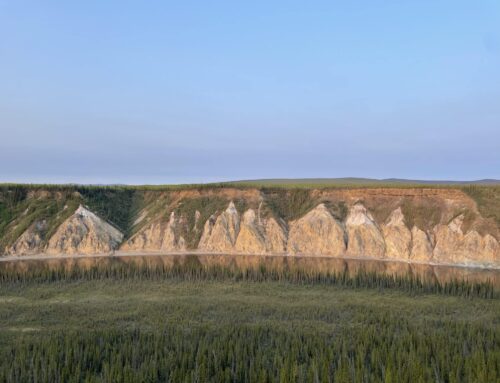Under the 135 year old Mining Law of 1872, valuable taxpayer lands and minerals are virtually given away to international mining conglomerates that then amass enormous profits from mining, or simply turn around and sell the once taxpayer-owned land to the highest bidder.
To add insult to injury, these same mine companies often abandon their mines once they are no longer profitable, or declare bankruptcy, sticking taxpayers with the costly tab for mine cleanup.
The Congressional Budget Office estimates the value of minerals extracted from public lands to be more than $1 billion annually, and according to the Environmental Protection Agency the messes mining companies leave behind may cost taxpayers more than $50 billion to clean up.
Below are several examples of how failure to update the 1872 Mining Law allows mining companies to take advantage of Utah residents:
Utah Giveaways
- Almost 230,000 acres of Utah’s public land have been sold to private interests for $5.00 or less per acre.
- Active mining claims in Utah increased by over 230 % from 2003 through 2007
|
Table 1. Partial Clean up Costs for 10 Utah Mine-Related Superfund Sites
(Source: EPA Records of Decision)
|
|
|
Site Name
|
Cost (millions)
|
|
1. Jacobs Smelter
|
$13.6
|
|
2. Int’l Smelting
|
$1.5
|
|
3. Richardson Flats
|
$3.7
|
|
4. Monticello
|
$42.3
|
|
5. Sharon Steel
|
$53.9
|
|
6. Murray
|
$11.6
|
|
7. Midvale Slag
|
$34.9
|
|
8. Flagstaff/Davenport
|
$3.5
|
|
9. Kennecott North
|
$6.7
|
|
10. Kennecott South
|
$210.3
|
|
TOTAL
|
|
Billions in Clean-up Costs
- A 2003 study estimates taxpayer liability for Utah’s mine sites at between $25.5 million and $1.5 billion.
- Clean up of 10.5 million tons of radioactive uranium mine waste from the Atlas Mine near Moab, Utah is estimated to cost taxpayers between $747 million and $857 million. The Atlas Corporation filed for bankruptcy in 1998, shirking financial responsibility.
- Eleven of Utah’s costly Superfund sites are mine-related. The EPA’s partial remediation plans for these sites is estimated at $382 million.
General Mining Law of 1872 Must be Reformed
The General Mining Law may have made sense 135 years ago; however, continuing to uphold its ancient provisions is bad fiscal policy. The failure to update this law continues to allow billions of dollars worth of minerals on federal land to be claimed by mining corporations for no more than $5 per acre, and leaves Utah residents on the hook for the costly mine clean up. Congress must act now to bring this archaic law into the 21st century, by charging fair market value for public lands and minerals, and holding mine companies responsible for their own reclamation costs.
For more information, please contact Autumn Hanna at (202) 546-8500 x112 or autumn [at] taxpayer.net.











Get Social